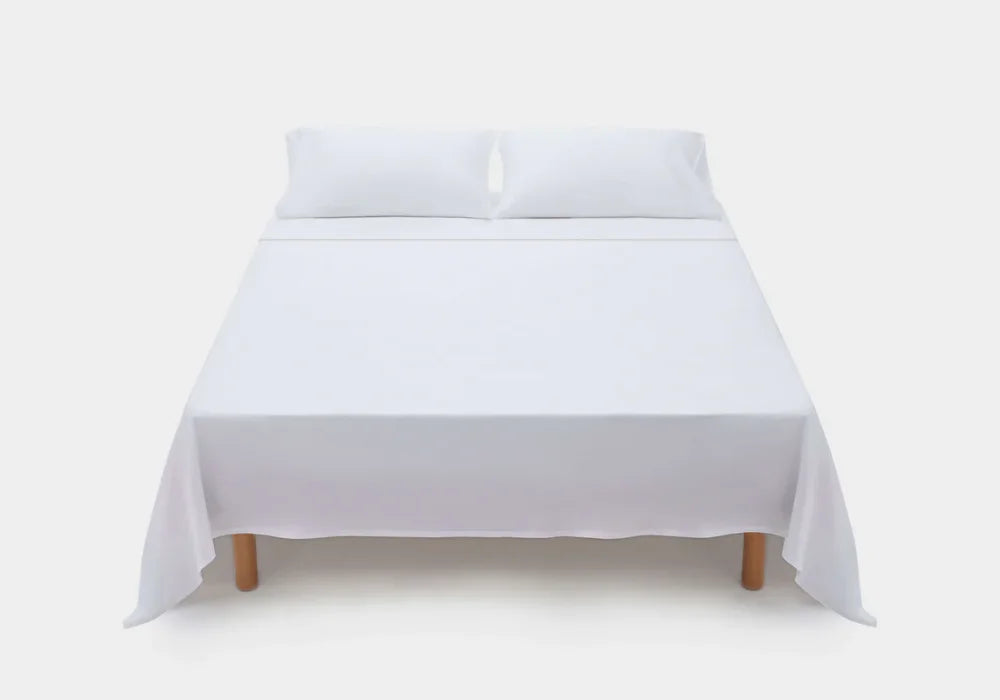Many people believe that sleep problems are just a normal part of getting older, especially with the demands of busy lives, stress, and ongoing aches and pains. But difficulty falling asleep or staying asleep isn’t unavoidable. In most cases, these sleep issues come from everyday habits that can interfere with your rest and lead to bigger health concerns.
The American Academy of Sleep Medicine reports that consistent sleep problems can cause fatigue, trouble focusing, and more serious issues like depression and high blood pressure. By understanding and changing these habits, you can improve your sleep naturally and wake up feeling refreshed and energized.
Reasons For Waking Up in The Middle of The Night
Insomnia
Insomnia is a common sleep disorder characterized by difficulty falling asleep or frequent awakenings, which results in poor sleep quality. Insomnia may be caused by psychological stress, anxiety, or physical discomfort. Frequent waking up at night and difficulty falling asleep again are typical symptoms of long-term insomnia.
Sleep Apnea
Sleep apnea is a serious sleep disorder in which breathing repeatedly stops during sleep. Due to lack of oxygen, the body automatically wakes you up to resume breathing, and these awakenings are usually so brief that you may not be aware of them. Not only does apnea interfere with sleep, it can also cause fatigue and health problems.
Stress
Emotional stress can keep the brain in a state of constant tension, making it difficult to fully relax even during sleep. Waking up at night is often because the brain cannot calm down, leading to repeated thoughts and interrupted sleep. This can be caused by work, family problems, or small things in daily life.
Eating too Much Before Bed
Eating too much before bed, especially eating heavy or greasy food, can cause indigestion, stomach discomfort, and disrupted sleep. Drinking coffee, alcohol, or excessive water can also cause acid reflux or frequent trips to the bathroom, leading to nighttime awakenings.
Ageing
As we age, physiological changes in the body may cause lighter sleep and make us more likely to wake up. Older people tend to wake up more often during the night, which is related to a decrease in melatonin production and changes in sleep cycles.
Medication Effects
Certain medications, especially stimulants, blood pressure medications, and antidepressants, can affect sleep quality and cause nighttime awakenings. Some medications may cause a racing heartbeat, anxiety, or frequent trips to the bathroom, disrupting sleep.
Restless Legs Syndrome
This symptom is characterized by uncontrolled twitching or tingling in the legs, which often occurs at night and forces people to get up and move or adjust their positions frequently. In severe cases, it can repeatedly interrupt sleep and cause a night of restless sleep.
Anxiety
People with anxiety often have difficulty relaxing at night and repeatedly wake up because their brains are constantly active and unable to enter deep sleep. Anxiety not only affects falling asleep, but can also cause excessive dreaming or nighttime awakenings.
Hormone Fluctuations
Changes in hormone levels, especially in women during pregnancy, menopause, or the menstrual cycle, can affect sleep quality. Night sweats, changes in body temperature, or other hormonal triggers can often cause you to wake up during the night and have trouble falling asleep again.
7 Tips to Help You Fall Back Asleep In No Time
1. Change Your Sheets Frequently
So, you haven’t changed your sheets in a while. No big deal, right? Actually, dirty sheets can mess with your sleep by triggering allergies or asthma.
Dust mites thrive in bedding, and if they hang around, your allergy or asthma symptoms could get worse. Continuous exposure to these allergens may even lead to allergic rhinitis, causing sneezing, nasal congestion, and sleepless nights.
Pro tip: To avoid this, wash or change your sheets weekly to keep allergens at bay. Even better, switch to Souver Sheets. They are designed with hypoallergenic materials that actively repel dust mites and other irritants, helping you breathe easier and sleep better.
With Souver sheets, you’re not just improving your sleep—you’re protecting your health. Experience the difference and make Souver your go-to bedding solution for a cleaner, more restful night’s sleep.

2. Eat Healthy Foods to Promote Sleep
Avoiding caffeine before bed is a well-known tip for better sleep, but some foods can actually help you fall asleep faster. Bananas, rich in potassium and magnesium, relax your muscles and support sleep. Cherries, especially tart cherry juice, are packed with melatonin to improve sleep duration. Low-fat cottage cheese helps curb heartburn, while kiwi and Brazil nuts are great for boosting sleep quality with their nutrients. Lastly, light snacks like air-popped popcorn or toast can help you fall asleep without feeling too fu
Adding these foods to your evening routine could help you rest easier and improve your overall sleep health.
3. Make Exercise One of Your top Priorities For Better Sleep
Sitting around all day might leave you feeling drained, but it often makes falling asleep at night harder. Experts agree that active people generally sleep better than those who stay sedentary. A study of over 2,600 adults found that 150 minutes of exercise a week significantly reduced daytime sleepiness.
Physical activity helps build up your "sleep drive," which is like a balloon that fills throughout the day and leads to better sleep at night. Exercise also helps reduce stress and anxiety, both of which can cause insomnia.
You don’t need to overdo it—moderate activities like walking or biking for 20 minutes a day can make a big difference. Plus, research shows that working out in the evening won’t disrupt your sleep and might even help you fall asleep faster.
4. Using a Sleep Mask
Sleep masks aren’t just for plane rides or car naps—they can transform your sleep routine. By blocking out light, they make it easier to fall asleep and enjoy deeper rest.
Humans naturally slept at night for thousands of years, and before artificial lighting, darkness was the brain’s cue for sleep. Even now, when your brain senses darkness, it ramps up melatonin production, helping you doze off. A sleep mask can recreate this natural darkness, giving your brain the signal it needs.
Tip: The Souver mulberry silk sleep eye mask is your perfect nighttime companion. It not only blocks out light completely but also feels incredibly soft and gentle on your skin. Made from high-quality mulberry silk, it’s ideal for sensitive eyes and helps protect the delicate skin around your eyes while you sleep.
Upgrade your sleep routine with the Souver silk eye mask and experience a more restful night.
Read more: How to wash silk eye mask.

5. Place Some Fresh Lavender on Your Nightstand
Lavender is well-known for its calming effects, and it’s clear why. The soothing scent not only smells lovely but also has proven sleep-boosting benefits. Lavender helps relax your central nervous system, leading to longer and more restful sleep.
To enjoy its effects, you can place fresh lavender on your nightstand to keep the scent nearby all night. Alternatively, you can use lavender essential oil in a diffuser, an oil warmer, or even a pillow spray to recreate that calming atmosphere.
Whether fresh or in oil form, lavender can help you wind down and sleep more peacefully.
6. Sunbathing During The Day
Vitamin D supports mental calm and strengthens your immune system. Getting natural sunlight during the day helps regulate your body’s internal clock. This not only improves sleep quality but also boosts your energy levels throughout the day. Aim for a few hours of sunlight daily by going for a walk, biking around the neighborhood, or gardening. Small doses of sunlight can make a big difference in how you feel and sleep.
7. Take a Bath With Epsom Salt Before Bed
If you’ve had a stressful day, it might be harder to fall asleep because stress depletes your body’s magnesium. Magnesium is key for keeping your nerves healthy and calm. A natural way to restore your levels is through Magnesium Sulfate, commonly known as Epsom salt. Treat yourself to a warm bath with Epsom salt to ease tension and relax your mind. Add candles for an extra calming touch to your evening self-care routine.
In Conclusion
Improving your sleep doesn’t have to be complicated. By making small changes, like exercising regularly, eating the right foods, and using a sleep mask, you can boost your sleep quality naturally. Incorporating calming elements like lavender or an Epsom salt bath can help you unwind before bed. Sunlight exposure during the day can also regulate your body clock, leading to better rest at night. With these simple habits, you’ll wake up feeling refreshed and ready to take on the day.








Leave a comment
This site is protected by hCaptcha and the hCaptcha Privacy Policy and Terms of Service apply.